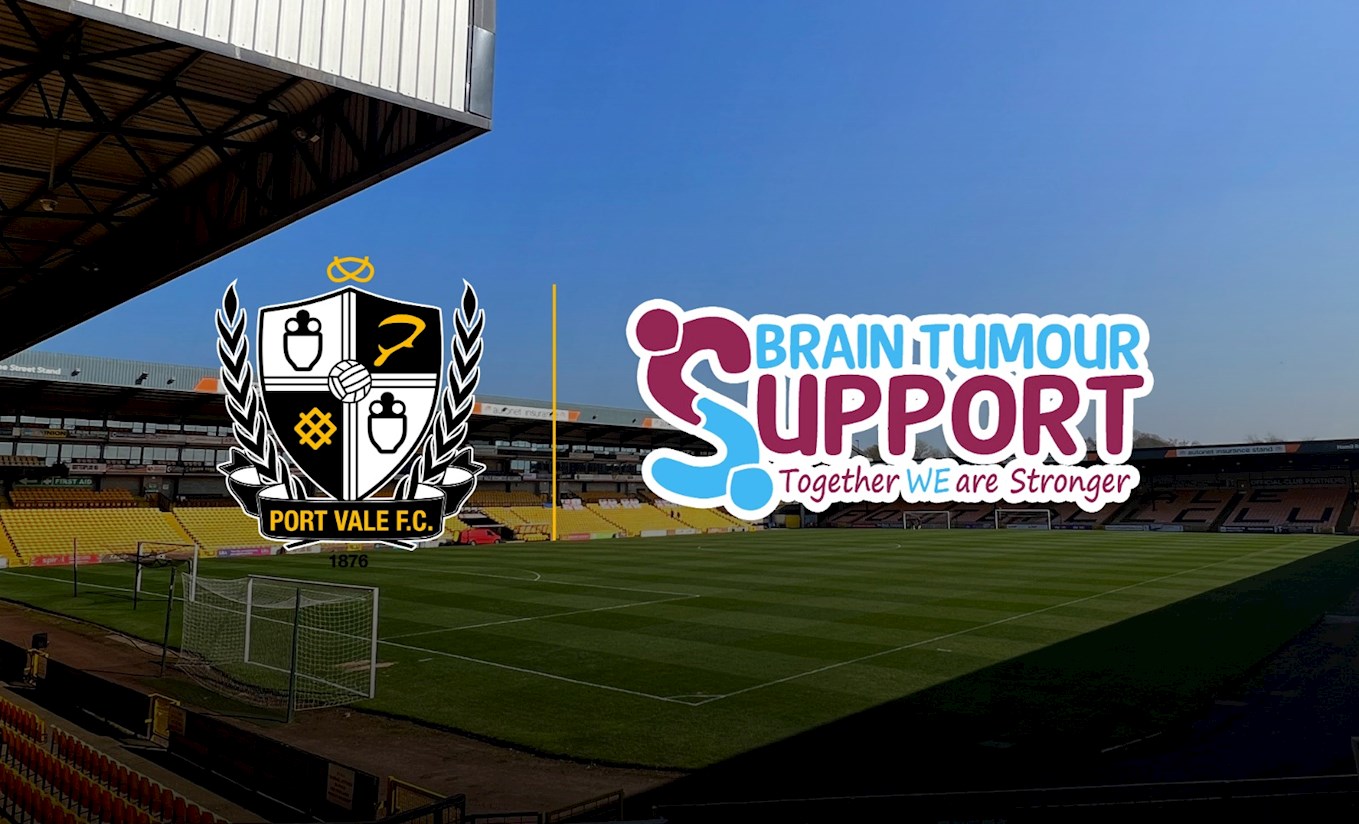Brain Tumour Support UK will be in the Staffordshire University Fan Zone and collections will take place around Vale Park, with donations welcomed to support the charity’s ongoing work.
- Valiants helping Brain Tumour Support to raise awareness and fundraise at Easter Monday match with Oxford United
- Brain Tumour Support UK is dedicated to providing specialist support for patients, families and carers affected by any type of brain tumour
- Find out more about Brain Tumour Support UK in the Staffordshire University Fan Zone, while your donations will be welcomed by the fundraising team at Monday’s fixture
Port Vale are backing the fundraising efforts of Brain Tumour Support ahead of their Superhero Day on Friday 28th April.
Volunteers and staff from Brain Tumour Support will be hosting a stand in the Staffordshire University Fan Zone ahead of our Easter Monday clash with Oxford United, raising awareness for their work, while collections will also be taking place around the ground.
Brain Tumour Support is the only UK charity dedicated to providing specialist support for patients, families and carers affected by any type of brain tumour. Their vision is that no-one feels alone when facing the effects of a brain tumour diagnosis.
Approximately 45 people each day in the UK face a brain tumour diagnosis, with over 100,000 people in the UK living with a brain tumour.
Brain Tumour Support provide tailored support across the UK through skilled, regionally-based Support Professionals and professional specialised counselling. The comprehensive services include support sessions, individualised and specialist information, and one-to-one practical and emotional support and guidance. They also have a dedicated Welfare Benefits Support Professional on the team. Help is delivered in a range of ways in order to reach as many people as possible. This includes Zoom, telephone, email, or their very popular Facebook Support Forums, and when needed, and if safe and feasible, face-to-face support. It is available, free of charge, at any point from diagnosis and for as long as it is needed.
They continue to campaign to raise public awareness of the physical, practical and psychological effects, for both patients and those closest to them, that a brain tumour diagnosis can have. Even non-malignant and low-grade tumours can often have life-changing effects leaving many people unable to live the lives they had before, and making specialist support vital.
Further information is available on their website: www.braintumoursupport.co.uk
